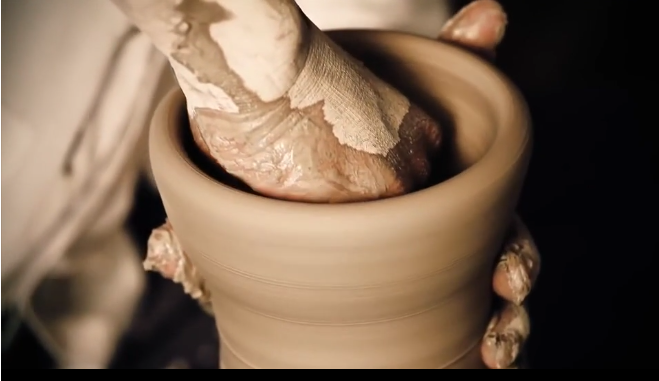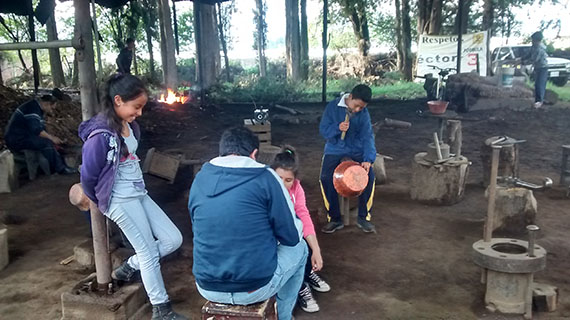Around half of Mexico’s population lives in poverty and faces high crime rates, causing millions of Mexican people to emigrate to the U.S. in search of a better life. Of the over 11.7 million immigrants from Mexico who now live the U.S., 26 percent came from just three states: Michoacán, Jalisco, and Durango. This region, once bustling with specialized craftsmanship, has been completely transformed in the face of competition with new and cheaper commercialized practices from abroad.
Eronguarícuaro and Santa Clara del Cobre are two communities within Michoacán that have experienced the effects of these changing commercial practices. Agreements like NAFTA stagnated Mexico’s GDP, which hit rural communities especially hard. Two hundred years ago, Eronguarícuaro had a rich history of brickmaking. Santa Clara del Cobre was once famous for its copperware. Yet, the once vibrant artisanal practices have rapidly dwindled.

Once vibrant artisanal practices in the state of Michoacán have rapidly dwindled because of new and cheaper commercialized practices from abroad.
As a native of the state of Michoacán, Gabriel Molina received a scholarship by his local municipality to study socio-economics in Morelia, the capital. When he returned to the area after his first year of school, Molina felt deeply unsettled by the rapid cultural decline. “I realized that the production activities I knew as a boy had been abandoned. The heads of the families had left their wives, children, and craftsmanship behind in search of better prospects in the United States.”
While at his university, Molina was exposed to business knowledge and resources that communities like Eronguarícuaro and Santa Clara del Cobre were missing out on. “We were learning so much, but we weren’t bringing that back to the [artisan] communities. I felt a responsibility to go back and remember where I came from.”
Many regions of Mexico, once bustling with specialized craftsmanship, have been completely transformed by competition with cheaper products from abroad. Tweet This Quote
In 2012, Molina returned to his community and started Hermol, which helps disenfranchised communities to restore, market, and sell their artisanal practices in order to provide a stable source of income for families – and preserve their cultural heritage.
In the case of Eronguarícuaro, Hermol guides the brick makers through every aspect of the brick production supply chain. “We sell to construction companies or directly to end users,” Molina says. “Ultimately, one of our goals is to export these products.”
Less than 25 miles away in Santa Clara del Cobre, Hermol is helping to pass down the tradition of making copperware by providing ovens for the community and will build an ‘artisan school,’ teaching the craft to local children. Profits from selling the copperware products go into a savings fund to help fund their college education.

Because of Hermol, children from Santa Clara del Cobre are now learning traditional copperware techniques.
At face value, the mission of Hermol is to market products and reignite distribution channels, yet its impact extends way beyond that. For these communities, being able to create and sell their products is a dignified solution that “seeks to regain pride and traditional techniques.”
So far, Hermol has benefitted 20 families and plans to expand operations to two more communities and help 40 more families by the end of the year. Additionally, Molina is starting a housing program with a microcredit system so that families can eventually own these homes. Currently, they are piloting this project with 18 families.
It’s not a lack of capacity that limits communities. They need someone who tells them that they can do it. Tweet This Quote
While building Hermol means overcoming many challenges common to startups, like finding the right sales channels, Molina finds that the most important advancements are more fundamental than that.
“In the end, it’s not a lack of capacity that limits the communities,” say Molina. “[They need] someone who tells them that they can do it, and someone to help them to believe that their traditional craftsmanship can generate the income they need in order to have a dignified life.”



